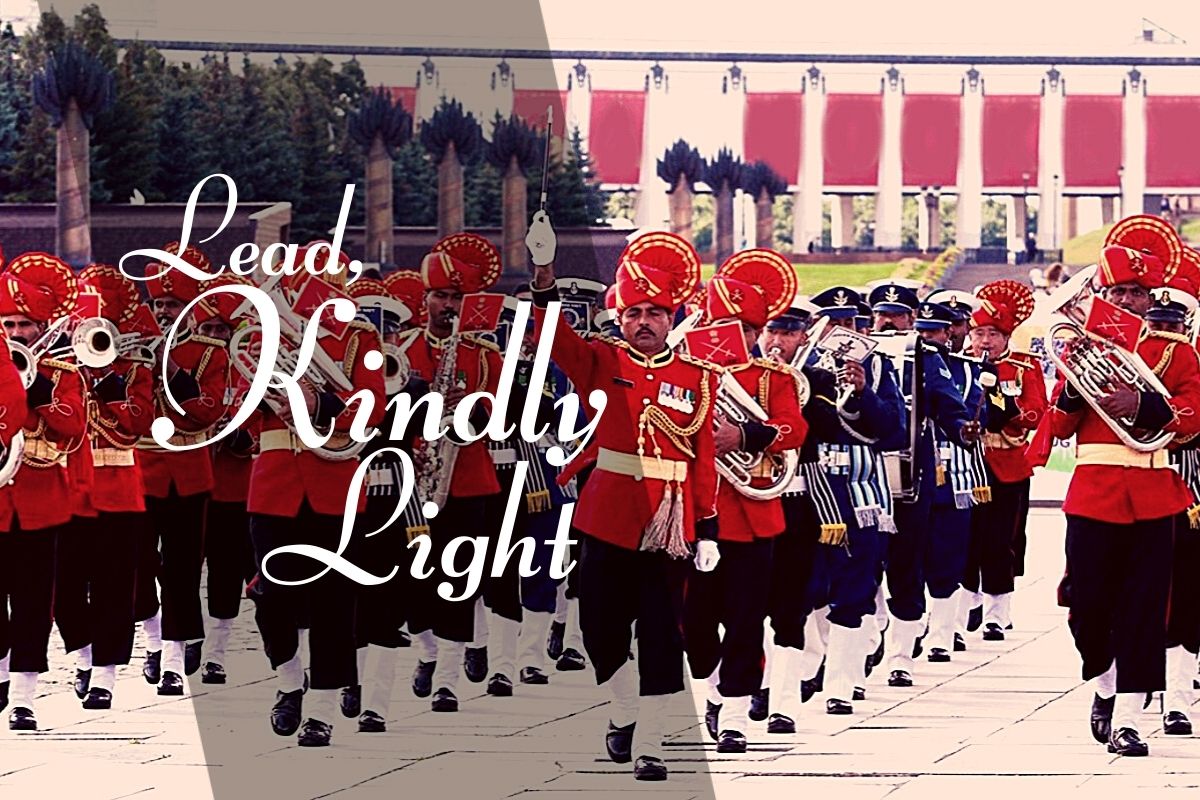
The ceremony is best remembered for its rendition of Abide with me on tubular bells that give it a mesmerising effect with a sudden glow of lights. The Christian hymn ‘Abide with me’ should not have been dropped! As such, there is very little, if not nothing to represent the Indian-Christian community at the National mainstream events.
So, we won’t get to hear Abide with Me this year.
Beating the Retreat, celebrated every year on the 29th of January, culminates India’s Republic Day celebrations. A few years ago, the defence ministry took a decision to drop this traditional Christian hymn (believed to have been the Mahatma’s favourite).
Beating the Retreat is an annual extravaganza of heart-stirring military music, punctilious drill and enchanting colours. Abide with Me remained a regular feature at the ceremony for a long time. Not surprisingly, its sudden exclusion from the repertoire has hit a blizzard of headlines. Sadly, it did not matter!
The 30 odd tunes played by the military bands every year are nothing but a burst of excellence. The credit for such a celebrated ceremony goes to Major G.A Roberts, the adviser in Military Music for making it the grand show it has come to be.
Roberts came up with the idea of a magnificent show in 1961 when the then Prime Minister Jawaharlal Nehru wished to honour the visiting British Queen Elizabeth II and Prince Philips. Since then, Beating the Retreat has become an official ceremony to honour the visiting dignitary for the Republic Day celebrations.
The high point of the event is the rendition of Abide with Me by the combined brass bands of the three armed forces. It is a spectacular sight to behold, particularly when the lights come on at the playing of the very last note.
This magical moment marks the end of the grand ceremony. It is sad to see Abide with Me dropped from the repertoire. I don’t think ‘Abide with me’ made it to the repertoire because it was a ‘Christian’ hymn. Its use was probably inspired by its erstwhile British connection or maybe not.
Now, it has been dropped, possibly due to a shift in focus towards Indianization. The Brass Band will play Kavi Pradeep’s Mere Watan Ke Logon which talks about the sacrifices made by the Indian army during the Indo-Chinese War (1962)
To be fair, the trend to Indianize military tunes began long ago. Post Independence, military musicians have composed a large repertoire of Indian tunes. Several Indian tunes have already replaced British tunes in military parades and band performances.
In fact, two-thirds of the tunes played last year were composed by Indian musicians. Moreover, non-military instruments, such as Sitar and tabla, have also been introduced. The Indianizing efforts have no doubt introduced a string of cuts. Such changes to the format have been widely criticized by many, including those who have served the armed forces.
In the bygone years, Abide with Me has enthralled the crowds at Vijay Chowk and beyond. In fact, the ceremony is best remembered for its rendition of this hymn on tubular bells that give it a mesmerising effect with a sudden glow of lights. Most Indians have loved this hymn. No one has labelled it as an English hymn, let alone a Christian one.
Should the ‘Christian’ hymn go? Interestingly, the lyrics are set to a tune (Eventude) composed by William Henry Monk. In reality, the brass bands will only play Eventude. Any association with the lyrics will only be due to familiarity and use. In my opinion, this popular hymn could have been easily retained, even if it sounded a bit ‘Christian’.
Being a popular hymn it would have helped the small religious minority find their space in National events. As such, there is very little, if not nothing to represent the Indian-Christian community at the National mainstream events.
The inclusion of the hymn would have given the community a rare sense of acceptance and equally allayed their concerns of further alienation. At least, such a quick fix symbolism would be seen as a welcome gesture.
Today we live in a context of fear, hate and violence, either manipulated or manufactured. If ever we need God’s abiding presence it is NOW! Abide with me is a simple prayer for reassurance of Divine presence. It is a prayer for God’s personal presence, particularly as one journies through difficult times.
Although written by Henry Francis Lyte, an Anglican Priest, the hymn has a Universal message. The hymn has been a great spiritual resource to many and will continue to bring renewal to the lives of many who are struggling with fear, insecurity and threat.
Agreed, the military bands need to play Indian tunes at the ceremony. But, is there some Ideological manoeuvering behind this? Call it what you will: Beating the Retreat with a Nationalist fervour or Indianizing flavour!
Indian Christians have never claimed exclusive religious rights over the song. Countless Indians, like me, will surely miss the hymn Abide with Me. May the Spirit of the hymn continue to chime in our hearts and minds!
God, we need you NOW more than ever before. Abide with me/us.
Photo from Wikimedia Commons, the free media repository







